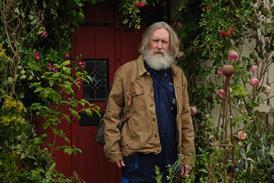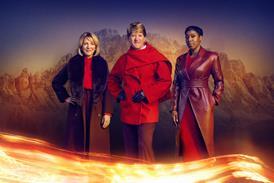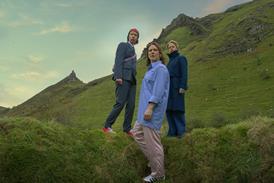RTS was the most upbeat in years as cross-platform strategies emerged.
In 2009, I described the RTS Cambridge Convention as the “biennial doom-fest” after years of hearing the same old “we’re done for” whinging. It was all moan and no action.
As the then ITV chairman Michael Grade said: “Whenever someone says we need another debate, I reach for my revolver.” I was ready to join him.
This time, I didn’t feel quite so suicidal. This was the most upbeat RTS in years, with chair Adam Crozier focusing minds on the opportunities presented by connected TV and the ability to create and release content across platforms and the globe.
It was clear that attitudes have changed and broadcasters are at last developing cross-platform strategies. For ITV, it’s about exploiting the channel brands while retaining control of them, as well as building on incremental payments for content; for Channel 4, it’s about data mining; and for Sky, it’s about investing in original content, in addition to growing through its triple-play offering.
For the BBC, the future will become clearer once Quality First is finally Delivered.
All of which is to be welcomed, but none of it goes far enough. I didn’t come away from the RTS thinking that TV had nailed the digital future. Of course, this is a fast-moving industry so perhaps it’s realistic to think only in terms of the short-to-medium term, but there was no killer app.
There was also the customary note of caution, with both ITV’s Crozier and RTL’s Gerhard Zeiler refusing to get into bed with the likes of Google TV - unless they get paid for it. On this issue, however, they are right to stand firm. Maintaining control over channel brands and advertising is the only way to protect revenues - and futures.
Meanwhile, culture secretary Jeremy Hunt tried to prove he hadn’t been totally besieged by the News Corp/BSkyB deal by covering, well, everything.
A corollary was a lack of detail, particularly around his cross-media regulation idea - that newspapers create their own independent regulator covering all that they produce.
This will make for an interesting future when viewers flick between Guardian TV News and BBC News on their connected tellies, each regulated differently.
Further probing failed to deliver any answers, other than: viewers will know the brands well enough to know that one is different from the other. That may be the case now, but will it remain so?
There was also a defence of the terms of trade from Talkback Thames boss Sara Geater and Fremantle’s Tony Cohen. While it might have sounded self-serving initially, the importance of rights to British TV Plc is evident.
Of the world’s top 12 formats over the past four years, six are from the UK. We have 40% of the global format market, and 75% of that is from the indie sector.
Cohen says: “Broadcasters around the world have outsourced the risk of formats to the UK.”
There’s only one way that can continue…
Lisa Campbell is editor of Broadcast


























No comments yet